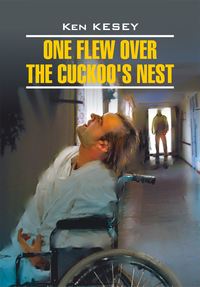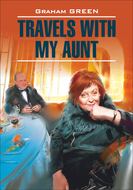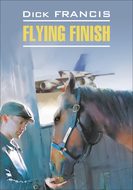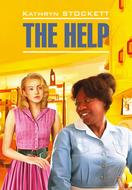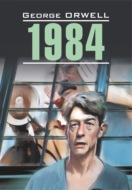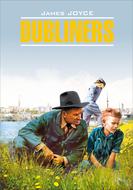Kitabı oku: «One Flew over the Cuckoo's Nest / Пролетая над гнездом кукушки. Книга для чтения на английском языке», sayfa 2
3
The new man stands looking a minute, to get the setup of the day room.
One side of the room younger patients, known as Acutes because the doctors figure them still sick enough to be fixed, practice arm wrestling and card tricks where you add and subtract and count down so many and it’s a certain card. Billy Bibbit tries to learn to roll a tailor-made cigarette, and Martini walks around, discovering things under the tables and chairs. The Acutes move around a lot. They tell jokes to each other and snicker in their fists (nobody ever dares let loose and laugh, the whole staff ’d be in with notebooks and a lot of questions) and they write letters with yellow, runty, chewed pencils.
They spy on each other. Sometimes one man says something about himself that he didn’t aim to let slip, and one of his buddies at the table where he said it yawns and gets up and sidles over to the big log book by the Nurses’ Station and writes down the piece of information he heard – of therapeutic interest to the whole ward, is what the Big Nurse says the book is for, but I know she’s just waiting to get enough evidence to have some guy reconditioned at the Main Building, overhauled in the head to straighten out the trouble.
The guy that wrote the piece of information in the log book, he gets a star by his name on the roll and gets to sleep late the next day.
Across the room from the Acutes are the culls of the Combine’s product, the Chronics. Not in the hospital, these, to get fixed, but just to keep them from walking around the streets giving the product a bad name. Chronics are in for good, the staff concedes. Chronics are divided into Walkers like me, can still get around if you keep them fed, and Wheelers and Vegetables. What the Chronics are – or most of us – are machines with flaws inside that can’t be repaired, flaws born in, or flaws beat in over so many years of the guy running head-on into solid things that by the time the hospital found him he was bleeding rust in some vacant lot.
But there are some of us Chronics that the staff made a couple of mistakes on years back, some of us who were Acutes when we came in, and got changed over. Ellis is a Chronic came in an Acute and got fouled up bad when they overloaded him in that filthy brain-murdering room that the black boys call the “Shock Shop.” Now he’s nailed against the wall in the same condition they lifted him off the table for the last time, in the same shape, arms out, palms cupped, with the same horror on his face. He’s nailed like that on the wall, like a stuffed trophy. They pull the nails when it’s time to eat or time to drive him in to bed when they want him to move so’s I can mop the puddle where he stands. At the old place he stood so long in one spot the piss ate the floor and beams away under him and he kept falling through to the ward below, giving them all kinds of census headaches down there when roll check came around.
Ruckly is another Chronic came in a few years back as an Acute, but him they overloaded in a different way: they made a mistake in one of their head installations. He was being a holy nuisance all over the place, kicking the black boys and biting the student nurses on the legs, so they took him away to be fixed. They strapped him to that table, and the last anybody saw of him for a while was just before they shut the door on him; he winked, just before the door closed, and told the black boys as they backed away from him, “You’ll pay for this, you damn tarbabies.”
And they brought him back to the ward two weeks later, bald and the front of his face an oily purple bruise and two little button-sized plugs stitched one above each eye. You can see by his eyes how they burned him out over there; his eyes are all smoked up and gray and deserted inside like blown fuses. All day now he won’t do a thing but hold an old photograph up in front of that burned-out face, turning it over and over in his cold fingers, and the picture wore gray as his eyes on both sides with all his handling till you can’t tell any more what it used to be.
The staff, now, they consider Ruckly one of their failures, but I’m not sure but what he’s better off than if the installation had been perfect. The installations they do nowadays are generally successful. The technicians got more skill and experience. No more of the button holes in the forehead, no cutting at all – they go in through the eye sockets. Sometimes a guy goes over for an installation, leaves the ward mean and mad and snapping at the whole world and comes back a few weeks later with black-and-blue eyes like he’d been in a fist-fight, and he’s the sweetest, nicest, best-behaved thing you ever saw. He’ll maybe even go home in a month or two, a hat pulled low over the face of a sleepwalker wandering round in a simple, happy dream. A success, they say, but I say he’s just another robot for the Combine and might be better off as a failure, like Ruckly sitting there fumbling and drooling over his picture. He never does much else. The dwarf black boy gets a rise out of him from time to time by leaning close and asking, “Say, Ruckly, what you figure your little wife is doing in town tonight?” Ruckly’s head comes up. Memory whispers someplace in that jumbled machinery. He turns red and his veins clog up at one end. This puffs him up so he can just barely make a little whistling sound in his throat. Bubbles squeeze out the corner of his mouth, he’s working his jaw so hard to say something. When he finally does get to where he can say his few words it’s a low, choking noise to make your skin crawl – “Fffffffuck da wife! Fffffffuck da wife!” and passes out on the spot from the effort.
Ellis and Ruckly are the youngest Chronics. Colonel Matterson is the oldest, an old, petrified cavalry soldier from the First War who is given to lifting the skirts of passing nurses with his cane, or teaching some kind of history out of the text of his left hand to anybody that’ll listen. He’s the oldest on the ward, but not the one’s been here longest – his wife brought him in only a few years back, when she got to where she wasn’t up to tending him any longer.
I’m the one been here on the ward the longest, since the Second World War. I been here on the ward longer’n anybody. Longer’n any of the other patients. The Big Nurse has been here longer’n me.
The Chronics and the Acutes don’t generally mingle. Each stays on his own side of the day room the way the black boys want it. The black boys say it’s more orderly that way and let everybody know that’s the way they’d like it to stay. They move us in after breakfast and look at the grouping and nod. “That’s right, gennulmen, that’s the way. Now you keep it that way.”
Actually there isn’t much need for them to say anything, because, other than me, the Chronics don’t move around much, and the Acutes say they’d just as leave stay over on their own side, give reasons like the Chronic side smells worse than a dirty diaper. But I know it isn’t the stink that keeps them away from the Chronic side so much as they don’t like to be reminded that here’s what could happen to them someday. The Big Nurse recognizes this fear and knows how to put it to use; she’ll point out to an Acute, whenever he goes into a sulk, that you boys be good boys and cooperate with the staff policy which is engineered for your cure, or you’ll end up over on that side.
(Everybody on the ward is proud of the way the patients cooperate. We got a little brass tablet tacked to a piece of maple wood that has printed on it: CONGRATULATIONS FOR GETTING ALONG WITH THE SMALLEST NUMBER OF PERSONNEL OF ANY WARD IN THE HOSPITAL. It’s a prize for cooperation. It’s hung on the wall right above the log book, right square in the middle between the Chronics and Acutes.)
This new redheaded Admission, McMurphy, knows right away he’s not a Chronic. After he checks the day room over a minute, he sees he’s meant for the Acute side and goes right for it, grinning and shaking hands with everybody he comes to. At first I see that he’s making everybody over there feel uneasy, with all his kidding and joking and with the brassy way he hollers at that black boy who’s still after him with a thermometer, and especially with that big wide-open laugh of his. Dials twitch in the control panel at the sound of it. The Acutes look spooked and uneasy when he laughs, the way kids look in a schoolroom when one ornery kid is raising too much hell with the teacher out of the room and they’re all scared the teacher might pop back in and take it into her head to make them all stay after. They’re fidgeting and twitching, responding to the dials in the control panel; I see McMurphy notices he’s making them uneasy, but he don’t let it slow him down.
“Damn, what a sorry-looking outfit. You boys don’t look so crazy to me.” He’s trying to get them to loosen up, the way you see an auctioneer spinning jokes to loosen up the crowd before the bidding starts. “Which one of you claims to be the craziest? Which one is the biggest loony? Who runs these card games? It’s my first day, and what I like to do is make a good impression straight off on the right man if he can prove to me he is the right man. Who’s the bull goose loony here?”
He’s saying this directly to Billy Bibbit. He leans down and glares so hard at Billy that Billy feels compelled to stutter out that he isn’t the buh-buh-buh-bull goose loony yet, though he’s next in luh-luh-line for the job.
McMurphy sticks a big hand down in front of Billy, and Billy can’t do a thing but shake it. “Well, buddy,” he says to Billy, “I’m truly glad you’re next in luh-line for the job, but since I’m thinking about taking over this whole show myself, lock, stock, and barrel, maybe I better talk with the top man.” He looks round to where some of the Acutes have stopped their card-playing, covers one of his hands with the other, and cracks all his knuckles at the sight. “I figure, you see, buddy, to be sort of the gambling baron on this ward, deal a wicked game of blackjack. So you better take me to your leader and we’ll get it straightened out who’s gonna be boss around here.”
Nobody’s sure if this barrel-chested man with the scar and the wild grin is play-acting or if he’s crazy enough to be just like he talks, or both, but they are all beginning to get a big kick out of going along with him. They watch as he puts that big red hand on Billy’s thin arm, waiting to see what Billy will say. Billy sees how it’s up to him to break the silence, so he looks around and picks out one of the pinochle-players: “Handing,” Billy says, “I guess it would b-b-be you. You’re p-president of Pay-Pay-Patient’s Council. This m-man wants to talk to you.”
The Acutes are grinning now, not so uneasy any more, and glad that something out of the ordinary’s going on. They all razz Harding, ask him if he’s bull goose loony. He lays down his cards.
Harding is a flat, nervous man with a face that sometimes makes you think you seen him in the movies, like it’s a face too pretty to just be a guy on the street. He’s got wide, thin shoulders and he curves them in around his chest when he’s trying to hide inside himself. He’s got hands so long and white and dainty I think they carved each other out of soap, and sometimes they get loose and glide around in front of him free as two white birds until he notices them and traps them between his knees; it bothers him that he’s got pretty hands.
He’s president of the Patient’s Council on account of he has a paper that says he graduated from college. The paper’s framed and sits on his nightstand next to a picture of a woman in a bathing suit who also looks like you’ve seen her in the moving pictures – she’s got very big breasts and she’s holding the top of the bathing suit up over them with her fingers and looking sideways at the camera. You can see Harding sitting on a towel behind her, looking skinny in his bathing suit, like he’s waiting for some big guy to kick sand on him. Harding brags a lot about having such a woman for a wife, says she’s the sexiest woman in the world and she can’t get enough of him nights.
When Billy points him out Harding leans back in his chair and assumes an important look, speaks up at the ceiling without looking at Billy or McMurphy. “Does this… gentleman have an appointment, Mr. Bibbit?”
“Do you have an appointment, Mr. McM-m-murphy? Mr. Harding is a busy man, nobody sees him without an ap-appointment.”
“This busy man Mr. Harding, is he the bull goose loony?” He looks at Billy with one eye, and Billy nods his head up and down real fast; Billy’s tickled with all the attention he’s getting.
“Then you tell Bull Goose Loony Harding that R. P. McMurphy is waiting to see him and that this hospital ain’t big enough for the two of us. I’m accustomed to being top man. I been a bull goose catskinner for every gyppo logging operation in the Northwest and bull goose gambler all the way from Korea, was even bull goose pea weeder on that pea farm at Pendleton – so I figure if I’m bound to be a loony, then I’m bound to be a stompdown dadgum4 good one. Tell this Harding that he either meets me man to man or he’s a yaller skunk and better be outta town by sunset.”
Harding leans farther back, hooks his thumbs in his lapels. “Bibbit, you tell this young upstart McMurphy that I’ll meet him in the main hall at high noon and we’ll settle this affair once and for all, ‘libidos a-blazin’.” Harding tries to drawl like McMurphy; it sounds funny with his high, breathy voice. “You might also warn him, just to be fair, that I have been bull goose loony on this ward for nigh onto two years, and that I’m crazier than any man alive.”
“Mr. Bibbit, you might warn this Mr. Harding that I’m so crazy I admit to voting for Eisenhower.”
“Bibbit! You tell Mr. McMurphy I’m so crazy I voted for Eisenhower twice!”
“And you tell Mr. Harding right back” – he puts both hands on the table and leans down, his voice getting low – “that I’m so crazy I plan to vote for Eisenhower again this November.”
“I take off my hat,” Harding says, bows his head, and shakes hands with McMurphy. There’s no doubt in my mind that McMurphy’s won, but I’m not sure just what.
All the other Acutes leave what they’ve been doing and ease up close to see what new sort this fellow is. Nobody like him’s ever been on the ward before. They’re asking him where he’s from and what his business is in a way I’ve never seen them do before. He says he’s a dedicated man. He says he was just a wanderer and logging bum before the Army took him and taught him what his natural bent was; just like they taught some men to goldbrick and some men to goof off, he says, they taught him to play poker. Since then he’s settled down and devoted himself to gambling on all levels. Just play poker and stay single and live where and how he wants to, if people would let him, he says, “but you know how society persecutes a dedicated man. Ever since I found my callin’ I done time in so many small-town jails I could write a brochure. They say I’m a habitual hassler. Like I fight some. Sheeut. They didn’t mind so much when I was a dumb logger and got into a hassle; that’s excusable, they say, that’s a hard-workin’ feller blowing off steam, they say. But if you’re a gambler, if they know you to get up a back-room game now and then, all you have to do is spit slantwise and you’re a goddamned criminal. Hooee, it was breaking up the budget drivin’ me to and from the pokey for a while there.”
He shakes his head and puffs out his cheeks.
“But that was just for a period of time. I learned the ropes. To tell the truth, this ‘sault and battery I was doing in Pendleton was the first hitch in close to a year. That’s why I got busted. I was outa practice; this guy was able to get up off the floor and get to the cops before I left town. A very tough individual…”
He laughs again and shakes hands and sits down to arm wrestle every time that black boy gets too near him with the thermometer, till he’s met everybody on the Acute side. And when he finishes shaking hands with the last Acute he comes right on over to the Chronics, like we aren’t no different. You can’t tell if he’s really this friendly or if he’s got some gambler’s reason for trying to get acquainted with guys so far gone a lot of them don’t even know their names.
He’s there pulling Ellis’s hand off the wall and shaking it just like he was a politician running for something and Ellis’s vote was good as anybody’s. “Buddy,” he says to Ellis in a solemn voice, “my name is R. P. McMurphy and I don’t like to see a full-grown man sloshin’ around in his own water. Whyn’t you go get dried up?”
Ellis looks down at the puddle around his feet in pure surprise. “Why, I thank you,” he says and even moves off a few steps toward the latrine before the nails pull his hands back to the wall.
McMurphy comes down the line of Chronics, shakes hands with Colonel Matterson and with Ruckly and with Old Pete. He shakes the hands of Wheelers and Walkers and Vegetables, shakes hands that he has to pick up out of laps like picking up dead birds, mechanical birds, wonders of tiny bones and wires that have run down and fallen. Shakes hands with everybody he comes to except Big George the water freak, who grins and shies back from that unsanitary hand, so McMurphy just salutes him and says to his own right hand as he walks away, “Hand, how do you suppose that old fellow knew all the evil you been into?”
Nobody can make out what he’s driving at, or why he’s making such a fuss with meeting everybody, but it’s better’n mixing jigsaw puzzles. He keeps saying it’s a necessary thing to get around and meet the men he’ll be dealing with, part of a gambler’s job. But he must know he ain’t going to be dealing with no eighty-year-old organic who couldn’t do any more with a playing card than put it in his mouth and gum it awhile. Yet he looks like he’s enjoying himself, like he’s the sort of guy that gets a laugh out of people.
I’m the last one. Still strapped in the chair in the corner. McMurphy stops when he gets to me and hooks his thumbs in his pockets again and leans back to laugh, like he sees something funnier about me than about anybody else. All of a sudden I was scared he was laughing because he knew the way I was sitting there with my knees pulled up and my arms wrapped around them, staring straight ahead as though I couldn’t hear a thing, was all an act.
“Hooeee,” he said, “look what we got here.”
I remember all this part real clear. I remember the way he closed one eye and tipped his head back and looked down across that healing wine-colored scar on his nose, laughing at me. I thought at first that he was laughing because of how funny it looked, an Indian’s face and black, oily Indian’s hair on somebody like me. I thought maybe he was laughing at how weak I looked. But then when I remember thinking that he was laughing because he wasn’t fooled for one minute by my deaf-and-dumb act; it didn’t make any difference how cagey the act was, he was onto me and was laughing and winking to let me know it.
“What’s your story, Big Chief? You look like Sittin’ Bull5 on a sitdown strike.” He looked over to the Acutes to see if they might laugh about his joke; when they just sniggered he looked back to me and winked again. “What’s your name, Chief?”
Billy Bibbit called across the room. “His n-n-name is Bromden. Chief Bromden. Everybody calls him Chief Buh-Broom, though, because the aides have him sweeping a l-large part of the time. There’s not m-much else he can do, I guess. He’s deaf.” Billy put his chin in hands. “If I was d-d-deaf” – he sighed – “I would kill myself.”
McMurphy kept looking at me. “He gets his growth, he’ll be pretty good-sized, won’t he? I wonder how tall he is.”
“I think somebody m-m-measured him once at s-six feet seven; but even if he is big, he’s scared of his own sh-sh-shadow. Just a bi-big deaf Indian.”
“When I saw him sittin’ here I thought he looked some Indian. But Bromden ain’t an Indian name. What tribe is he?”
“I don’t know,” Billy said. “He was here wh-when I c-came.”
“I have information from the doctor,” Harding said, “that he is only half Indian, a Columbia Indian, I believe. That’s a defunct Columbia Gorge tribe. The doctor said his father was the tribal leader, hence this fellow’s title, ‘Chief.’ As to the ‘Bromden’ part of the name, I’m afraid my knowledge in Indian lore doesn’t cover that.”
McMurphy leaned his head down near mine where I had to look at him. “Is that right? You deef, Chief?”
“He’s de-de-deef and dumb.”
McMurphy puckered his lips and looked at my face a long time. Then he straightened back up and stuck his hand out. “Well, what the hell, he can shake hands can’t he? Deef or whatever. By God, Chief, you may be big, but you shake my hand or I’ll consider it an insult. And it’s not a good idea to insult the new bull goose loony of the hospital.”
When he said that he looked back over to Harding and Billy and made a face, but he left that hand in front of me, big as a dinner plate.
I remember real clear the way that hand looked: there was carbon under the fingernails where he’d worked once in a garage; there was an anchor tattooed back from the knuckles; there was a dirty Band-Aid on the middle knuckle, peeling up at the edge. All the rest of the knuckles were covered with scars and cuts, old and new. I remember the palm was smooth and hard as bone from hefting the wooden handles of axes and hoes, not the hand you’d think could deal cards. The palm was callused, and the calluses were cracked, and dirt was worked in the cracks. A road map of his travels up and down the West. That palm made a scuffing sound against my hand. I remember the fingers were thick and strong closing over mine, and my hand commenced to feel peculiar and went to swelling up out there on my stick of an arm, like he was transmitting his own blood into it. It rang with blood and power: it blowed up near as big as his, I remember…
“Mr. McMurry.”
It’s the Big Nurse.
“Mr. McMurry, could you come here please?”
It’s the Big Nurse. That black boy with the thermometer has gone and got her. She stands there tapping that thermometer against her wrist watch, eyes whirring while she tries to gauge this new man. Her lips are in that triangle shape, like a doll’s lips ready for a fake nipple.
“Aide Williams tells me, Mr. McMurry, that you’ve been somewhat difficult about your admission shower. Is this true? Please understand, I appreciate the way you’ve taken it upon yourself to orient with the other patients on the ward, but everything in its own good time, Mr. McMurry. I’m sorry to interrupt you and Mr. Bromden, but you do understand: everyone… must follow the rules.”
He tips his head back and gives that wink that she isn’t fooling him any more than I did, that he’s onto her. He looks up at her with one eye for a minute.
“Ya know, ma’am,” he says, “ya know – that is the ex-act thing somebody always tells me about the rules…”
He grins. They both smile back and forth at each other, sizing each other up.
“…just when they figure I’m about to do the dead opposite.”
Then he lets go my hand.
stompdown dadgum – самым отъявленным
[Закрыть]
Sitting Bull – Сидящий Бык (1834–1890) – вождь индейцев племени Сиу, воевавший с белыми. Убит полицией.
[Закрыть]
